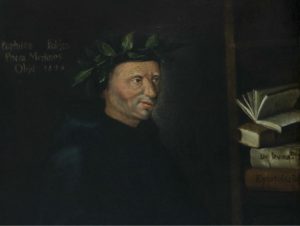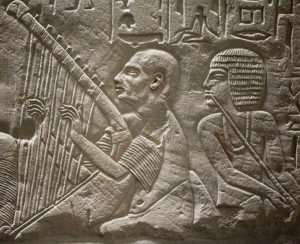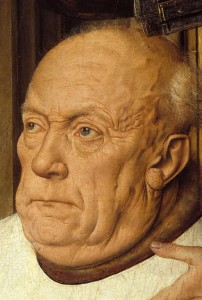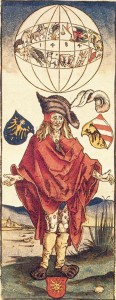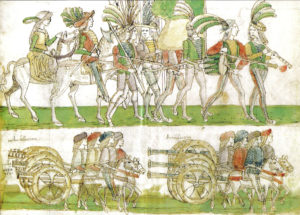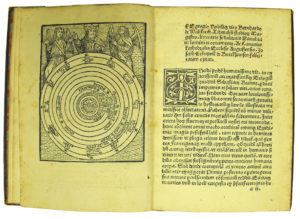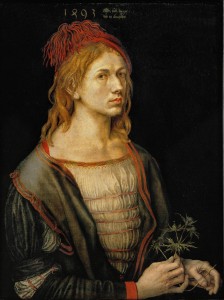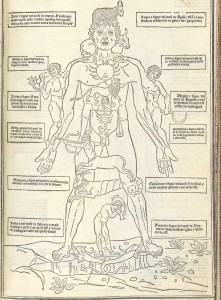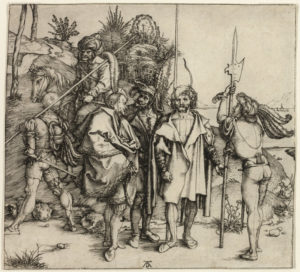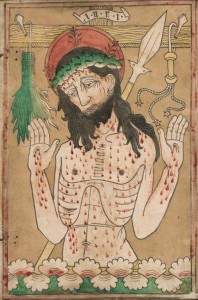The following are notes from the Death Art & Anatomy conference at the University of Winchester (03062016)
input
Invited speaker PAMELA KING: Cadaver tombs – whose choice?
Rejected Hegelian model. Looked at cadavers in terms of :
– geographical location
– social network
– iconography
The fashion for shrouds moved outwards and socially downwards.
Momento mori – Did cadaver tombs serve an education purpose? King suggests – “no”
Many variations in iconography – (point of death or of decay? double tiered or single? standing, recumbent or kneeling? personification of general death figure or of the individual *interesting point that this distinction is not made in wills*, real or allegorical ie state of sin? horror and fear or comfort of release?)
Henry Chichele – Duchy of Lancastar estate, perhaps wished for release in 1427, following a conflict between Henry Beaufort and pope, who retaliated by appointing a 16 year old italian as Chicele’s archdeacon.
Did he chose the cadaver tomb out of nostalgia for Canterbury Cathedral?
John Colet – border between asceticism and humanism. Erasmus sought him out, then claimed christ had a natural fear of death.
John (de) la grange in Avignon – 5 joys of the virgin – dans macabre OR was it satirical? is customised politically, rather than religiously?
Ralph Woodfor 1428 – cadaver inscribed slab.
Surface orthodox piety to cover the deeply personal. His tomb was not in his will, so was it already in place? He appeared in his will to be pedantic, anxious, even counting cattle. Ralph stretched the decorum and formula of the medieval will – why? Because he was disinherited because of the woman he married, who died? The will AND tomb suggest an anxious individual (due to the background war of the roses / family dispute?)
Isabel (le) Dispenser – in her descriptive wishes for her tomb, she was buying shoes!
Edward 4th asked for a cadaver tomb but did not get one… but where did he get the idea?
Often the cadaver tomb was not the idea of the dead – look at Thomas and Agnes who had 21 children and were represent in shroud bundles, with tied feet. Was this because they died so many years (a century) before the tomb was made that no one had their portrait or an idea of how they looked? Was it because they were very dead?
John Fitz Allen (?) died at 28 years old – did he consider his tomb? Folk Atum (?) brought his boned back and died with a will claiming the debt he was owed for bone return. There must have been an agreement made between Fitz Allen & Atum families, as the tomb was made. He was related to Dispenser /Beechem(?) family.
York Ministery – Haxey’s/Haxies tomb (the man who commissioned it was not the dead man – but friend? Showing affections between celibate men?
Elizabeth Tame
How often do we choose our own memorial? How often is it chosen by grieving families in a state of shock?
Roger Rockley (d. 1553) Was it fashion, political affiliation, social position? Why choose a cadaver tomb?
John Donne posed in his shroud
In Scotland? Kirkwell in Orkney – 18th century.
Are there children involved? Yes, on brasses. The parents are shrouded or not and the children appear as small figures underneath, the dead shrouded, the others not. Stillbirths appear in swaddling clothes.
Chicele 1427 – However much pomp in life, you will come to this. The office is a burden, there is release in death.
Le Grange – dans macabre supra-structure/superstructure
PANEL A – Art, Death & Disease
Fiona Davis
Deleuze – between life and death, is life playing with death?
Geometry – point has no physical dimension (so death must be a period, rather than a point)
“Cruel Optimism” – slow death – Lauren…. (obesity)
Chronic time – David Morris – Endurance performance art – Disruption of temporal (of chronic disease)
FRANCESCO MARIO CALASSI – Morphology & Pathology of the Temporary Artery in artistic representations
Ethical point – there must be a scientific question before exhuming a body, it can’t be done just out of the spirit of adventure.
Julius Caesar – did he have a stroke or epilepsy?
How much is anachronism? To challenge that concern we must combine philology, art and medicine.
The Italian Paleopathography Project
Renaissance art – Teofilo Fulengo (poet) – Facial paralysis – central not peripheral
Superficial temporal artery, “Here death is bled to be able to help life” (?)
Horton’s disease
The question is, “How ancient is temporal arteritis?” – Appelboom; van Eigem
1350BC the tomb of Pa-Atom-Em-Heb who appears in stone carving as “blind harpist”. Did he suffer from temporal arteritis?
Renaissance Flemish Italians were very particular about detail. Canon Van der Peale by Jan Van Eyck shows scar formation and loss of hair from the eyebrow and in front of the ear.
Writing from the time states Canon found difficulties attending morning service and by the time of the portrait painting, he was forced to stay at home – signs of temporal arteritis
Ritratto di comes anziano (1485) Florene
Ambroise Pare (1510-1590) – migraines, bloodletting
Ferrante 1 of Aragon (1431-1494) king of Naples. Lamentation of Guido Mazzani.
Francesco Giamberti (1405-1480) by Piere de Cosime – diagnosed by 4 physicians in current day
Filippino Lippi’s (1419-1504) Saint Frediano – paper written by Francesco Mario Galassi
Andrea Mantegna – Profile d’uomo (1448-1450)
Poloi Pezzoli – had no social problem painting realistically rickets, dwarfism
Flemish painters’ understanding of rheumatological conditions.
What’s the NEXT STEP? – reasses literature – paleopathological study (exhumation of the body) —> genetics of temporal arteritis.
“BUUTT! Edwin Smith Papyrus?” says audience
Must first get bodily evidence and with that, reflect back upon the cultural objects (texts, paintings) but both images and words cannot be read from a modern perspective as evidence
EMILY POORE
depiction of syphilis in woodcuts
Dürer’s Syphilitic Man (1496)
Secular and religious imagery / causal explanation
Symptoms, individual case, all shown (who why what when where)
French Troops and Artillery Entering Naples in 1495 (c.1498)
prostitutes – neapolitans expelled charles + soldiers
Alexanrei Benedicti – description of syphilis
Evan Block – 18 pages of synonyms for syphilis (ie countries trying to blame each other)
Head of a Prostitute with End-Stage Syphilitic Rhinitis (1790), engraving, vienna
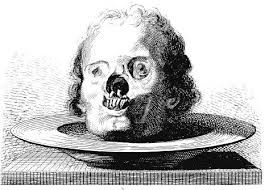
Sebastian Brant woodcut (1496) De pestilentiali scorra, sive
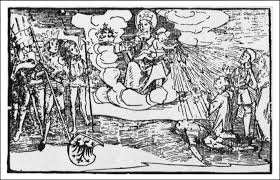
Physicians of body acknowledged god but focused on physical explanations
Josephus Grünpeck – De pestilentiali scorra, sive Mala de Franzos. [Augsburg: Johann Schaur, between 18 Oct. & 17 Dec. 1496.]
Pestblätter – pamphlets (early renaissance)
Dürer Self Portrait (1493)
“give my compliments to our friar… nothing of which I am more badly afraid…”… than syphilis (letter telling how Dürer was afraid of S
Celestial diagrams / zodiac man – Johannes de Ketham (1493) Festiculo de Medicina
Conjuntion of 4 (heavenly bodies in alignment) + sign of scorpio. Apollo, dream, responsible for outbreak.
The Doctrine of the Four Humours
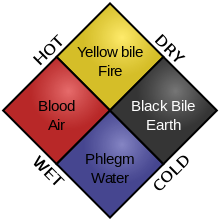
Coat of arms – city where authorised reports of syphilis. Sun motif at bottom – apollo (dreamt outbreak planetary reason)
Importance of dress (of D’s syphilitic man) for identity – LANDSKNECHT
Five Landsknechte and an Oriental on Horseback – Dürer (1495-1496)
It was more lucrative to be a soldier than to work in agriculture. Many soldiers were paid in cloth. Landsknechte were in fact impoverished peasants, contrary to what rich clothing suggests. They supported enemies of their own country, bought prostitutes…
Hans Knapp Lansknecht (c.1511) (?)
Urs Graf Two Mercenaries, Whore and Death (1524)
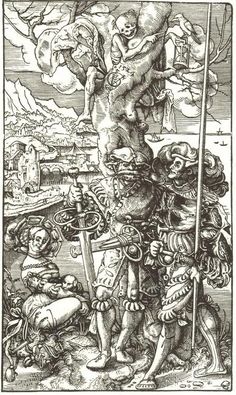
I am surprised there is no money in the land (günsberg?) 1524
~1520 the connection between syphilis and sex was accepted (until then it was a combination of the sexual and the celestial)
plural view of late 16th century medicine
D’s Syphilitic man has arms outstretched in the ostentatio vulnerum gesture
Man of Sorrows (c.1465-1470)
in this image, christ is simultaneously alive and dead
“andachtsbilder” – image for pious meditation
Was D’s S man a selfless sacrifice or punishment for indulgence? as with christ’s wounds – ongoing chronic illness.
St. Brocks & St. Sebastian were evoked because of a similarity in bodily marks
REFRESHMENTS (X)LOOK UP – Elina Gertsman – Estonia – Dans Macabre (?)
POETRY – Richard Barnett – Bog Bodies
Worcestershire – Geofrey hill, Elgar, Houseman
Henry James gradations
